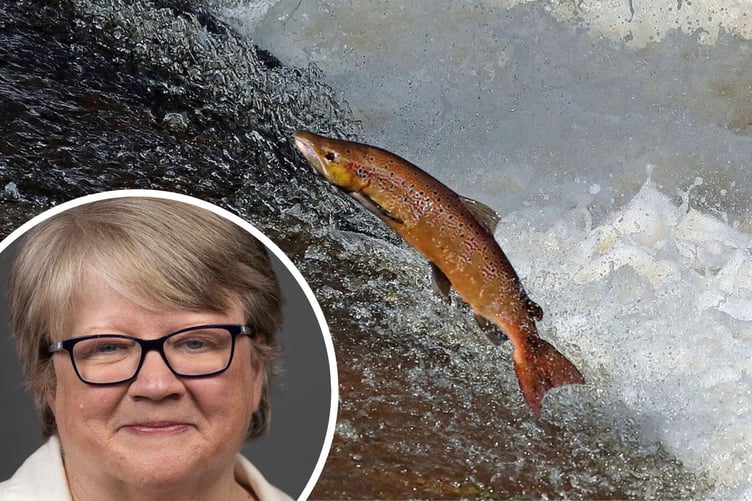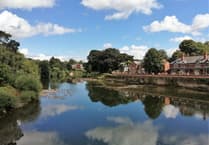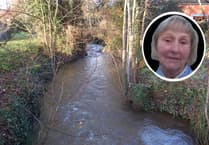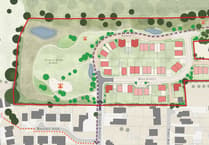Cooperation and enforcement are both needed to improve the “declining” River Wye, UK Environment Secretary Therese Coffey said in a visit to the region.
“Today wasn’t a day for finger pointing, nor was it a talking shop,” she said after a meeting last week involving county councillors from both sides of the border, farming and environmental groups, regulators, Avara Foods, MPs and the Welsh Government in Hereford to discuss ways to improve the ongoing poor state of the river.
Her visit coincided with the official status of the River Wye Special Area of Conservation being downgraded from “unfavourable recovering” to “unfavourable-declining” by the Government’s advisor Natural England, which highlighted the decline in salmon.
“It’s important to work in a coordinated fashion to reduce the impact on the river,” she said.
“We need to potentially be more radical. But it won’t be just one thing. Regulation isn’t the only answer but it is important.”
Ms Coffey had earlier welcomed the sentencing of Herefordshire landowner John Price to 12 months, reduced at appeal to 10 last week, for clearing a large and environmentally sensitive stretch of the River Lugg, a tributary which enters the Wye at Mordiford between Hereford and Ross-on-Wye.
“Where there is a gratuitous element, we have to take action and to stand up for nature when it is being targeted in this way,” she said. “That doesn’t mean taking people to court every day of the year.”
Emphasising the “carrots” as well as “sticks” involved, she pointed to £1.2m of funding allocated to farms in the Wye catchment to improve slurry infrastructure, and a doubling of funding for the Catchment Sensitive Farming advice programme.
The Government says it is also “growing the Environment Agency’s agricultural regulation workforce”, enabling it to undertake more farm inspections.
Farming is believed to be responsible for over 70 per cent of pollution in the river.
Asked whether it was sustainable to be raising 24 million chickens in the Wye catchment, Ms Coffey said: “People still want to eat chicken and we still import a lot of chickens into this country.
“An element of food production is sustainable, the key thing is how we handle the chicken manure, and we offer financial support to improve that.
“There is science and innovation around how we use phosphate so it doesn’t end up in rivers.”





Comments
This article has no comments yet. Be the first to leave a comment.